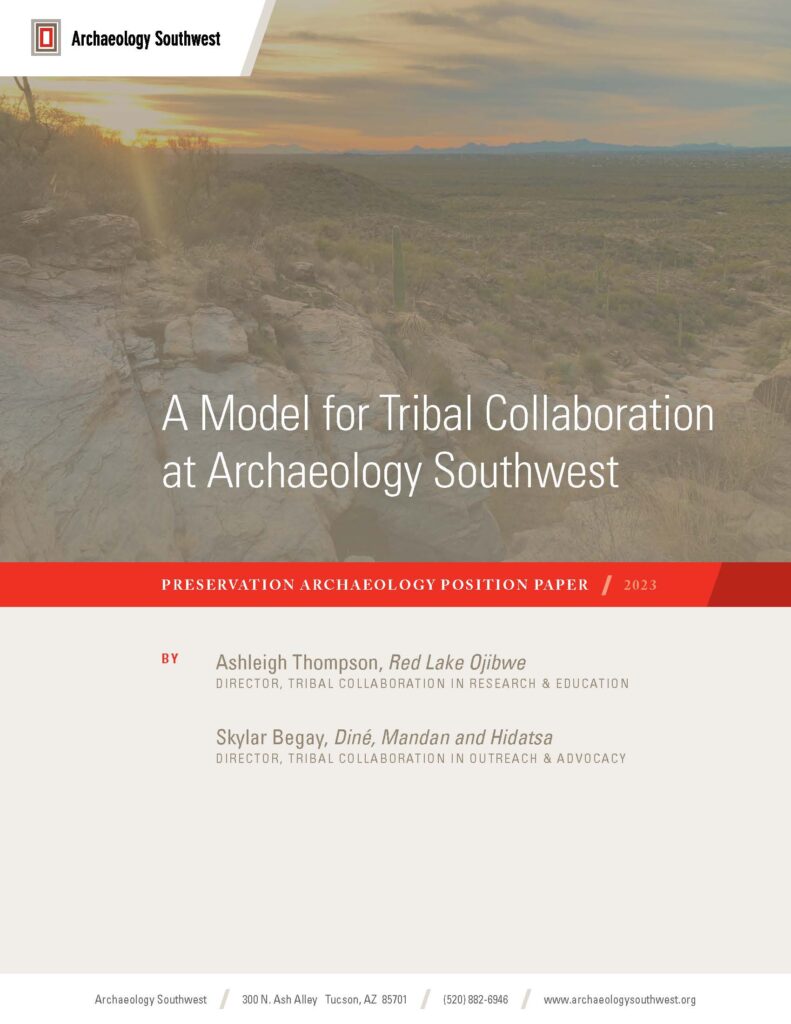- Home
- >
- Preservation Archaeology Blog
- >
- All My Relations: A Model for Tribal Collaboration

This is the first in a new series of posts that will consider the future of Preservation Archaeology. Each post will introduce a Preservation Archaeology Position Paper. We welcome and encourage feedback and sharing.

(April 27, 2023)—Recently, I learned about the Harvard Study of Adult Development, an 85-year-long project that gathered data from human subjects over the course of the subjects’ lifetimes. The study’s most significant finding was that positive relationships make people healthier and happier. For example, social connections are good for a human’s physical and mental health and result in a longer life span. Conversely, people experiencing isolation are less happy; their brain function declines sooner in life; and their lifespans are shorter.
Over the last few years, I’ve noticed that the importance of building good relationships continues to surface. A few months ago, my coworker Sky Begay and I were tasked with creating a Model for Tribal Collaboration for Archaeology Southwest. The model serves as a philosophy for how to collaborate with Tribes in meaningful and ethical ways. As I was brainstorming, I remembered one of the Indigenous philosophy readings for my comprehensive exams in graduate school. The authors present the four Rs, which stand for relationship, responsibility, reciprocity, and redistribution. These values can help guide researchers as they collaborate with Indigenous peoples (Harris and Wasilewski 2004). I thought it was a fitting framework for our Tribal collaboration model at Archaeology Southwest.
View or download the Tribal collaboration model
At powwows and other Indigenous events, the emcee will often say “All My Relations” as part of their greeting. Across Indigenous Country, this phrase relays the Indigenous teaching that the universe is made of interconnected relationships among all beings. As such, individuals should take into consideration the impact their actions will have on their human and more-than-human community. The other three teachings—responsibility, reciprocity, and redistribution—direct us in how to behave within our relationships. We are responsible for being good relatives, giving as much, and even more, than we take, and redistributing our resources to take care of one other.
Sky and I write more in-depth about the four Rs in A Model for Tribal Collaboration at Archaeology Southwest. We also discuss the importance of allowing time for visiting and relationship-building, something I’ve been consciously embodying over the last few years. I’m unlearning maxims from capitalistic, hustle culture—such as “time is money”—and instead, I spend more time maintaining relationships with my community, family, the land, and myself. Through our teachings, it is apparent that Indigenous people have understood the importance of relationships for a long time, and now, western science is also finding that healthy relationships are the foundation for a happy life.
